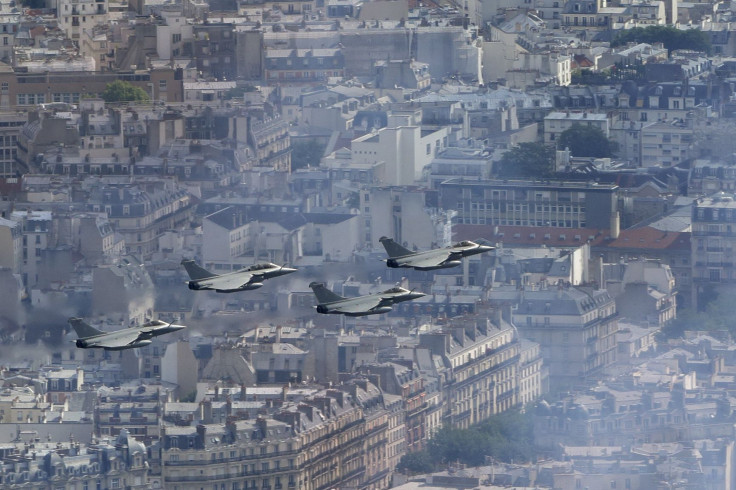France Delivers 3 Rafale Fighter Jets To Egypt As Part Of $5.9 Billion Deal

France on Monday delivered three Rafale fighter jets to Egypt, the first batch of 24 warplanes sold as part of a 5.2 billion euro ($5.6 billion) deal struck between the two countries early this year. The agreement reportedly marks the first foreign sale of Rafale jets for France, which will also sell 36 Rafales to India over the next few years.
The French fighter jets were handed over to Egyptian authorities at an air base in southern France. Specially trained pilots will fly them to Cairo on Tuesday, Agence France-Presse (AFP) reported. The deal is considered as Egyptian President Abdel Fattah al-Sisi’s attempt to break a U.S. monopoly in arms sales.
“The contract (with France) is an implicit message to the United States signifying that Egypt will no longer count exclusively on US weapon supplies,” Mohammed Mujahid al-Zayyat, a retired Egyptian army general, told AFP in February.
The deal is deemed vital for Cairo, which wants to boost its military strength amid growing threats linked to the Islamic State group in its eastern Sinai Peninsula as well as a chaotic Libya to the west.
France also expects benefits from the deal, hoping to get more orders for its flagship combat jet, AFP reported, adding that the overall contract also includes missiles and a FREMM multi-mission frigate from French industrial group DCNS.
Following the announcement of the deal in February, rights group Amnesty International criticized the sale of the jets and the frigate to a country like Egypt, which it accused of serious human rights violations.
“The year saw a continued dramatic deterioration in human rights following the ousting of President Mohamed Morsi in July 2013,” the group said in its Amnesty International Report 2014/15. “The government severely restricted freedoms of expression, association and assembly. Thousands were arrested and detained as part of a sweeping crackdown on dissent, with some detainees subjected to enforced disappearance.”
© Copyright IBTimes 2024. All rights reserved.












